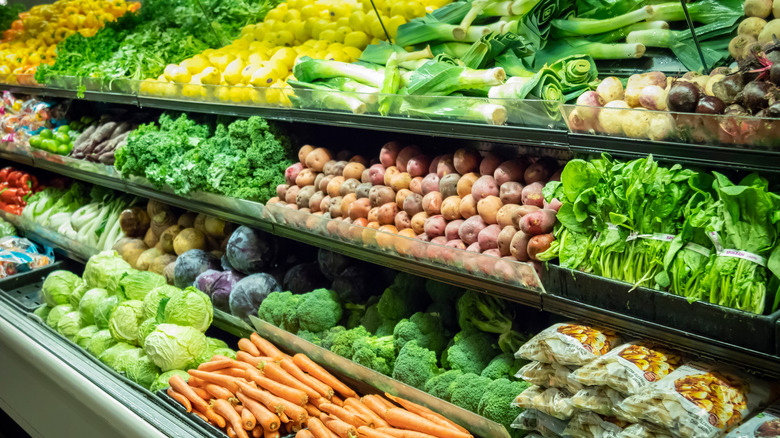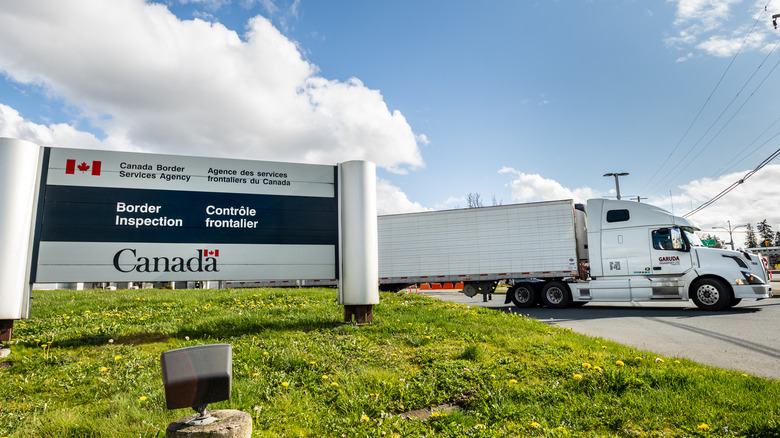What Canada's Border Vaccination Rules Mean For The Price Of Produce
People feel the effects of inflation at the grocery store as they take out personal loans to buy a package of chicken breasts, and consumers can now add increasing produce prices to their list of supermarket woes. A recently implemented vaccine mandate imposed on truckers moving produce across the U.S.-Canada border almost guarantees higher prices at the fruit and veggie aisle.
According to MSN, Canada now requires truckers from the States crossing the border into Canada to show proof of their COVID-19 vaccination status before they are allowed to transport any goods between the two countries. Likewise, unvaccinated Canadian truckers must take a COVID-19 test and quarantine when returning from the U.S. The Biden administration is set to enact a similar mandate on January 22 that will require proof of vaccination status to transport goods across the border (via Insider).
It's estimated that between 50% and 60% of American truckers and over 10% of Canadian truckers are unvaccinated. And with 80% of trade between the U.S. and Canada relying on transport via truck, these new mandates and requirements will likely increase prices for multiple reasons (via MSN).
Vaccine mandates at the Canadian border will drive prices up
Newly implemented vaccine mandates at the Canadian border have already caused a decrease in the number of vaccinated truckers eligible to transport goods back and forth between the United States and Canada. Adhering to new vaccine rules has made it more costly for companies to do business efficiently, and when they pay more, we pay more.
According to Bloomberg, transportation companies are working overtime to secure vaccinated truckers while trying to keep up with delivery schedules and product demand with a depleted workforce. Vaccine mandates have caused many companies to begin offering monetary incentives to hire vaccinated drivers and higher wages to current employees who have received their COVID-19 shot. A lack of vaccinated truckers means fewer trips across the Canadian border, longer wait times for orders, and a decrease in supply while demand increases. Transportation companies have already seen a 25% increase in the cost of moving produce from the U.S. to Canada last week alone.
Higher pay for vaccinated truckers and sluggish delivery times for perishable items have created a perfect storm of price increases that trickles down to the consumer. Analysts don't have positive updates, as they expect COVID-19-related food shortages and staffing issues to possibly increase prices by up to a staggering 20% in the first part of 2022 (via News Nation). Next time you grab a bag of grapes, be sure to check that price per pound.

